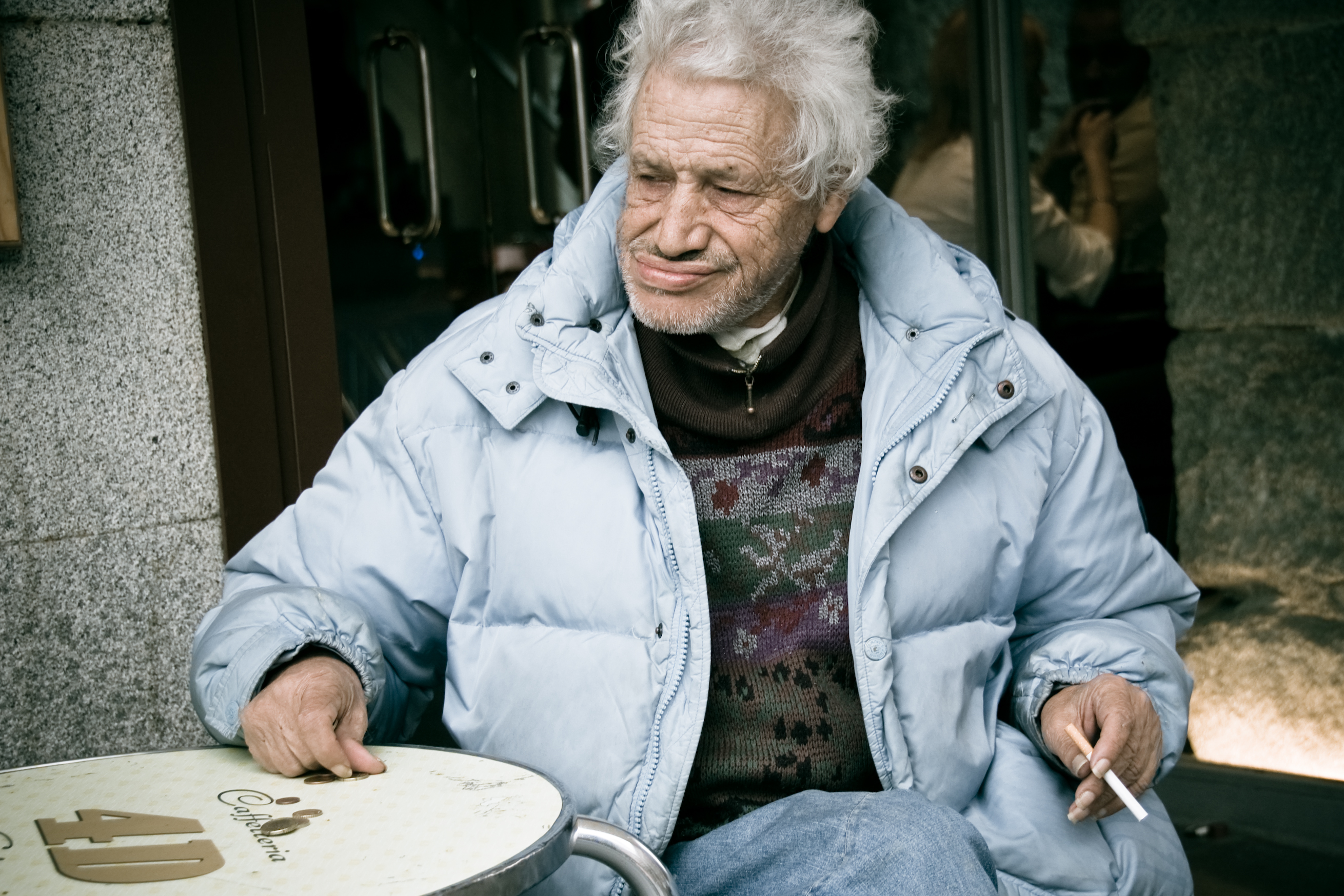Absent bodies and invisible lives
5. "No country for old men?"

Flickr photo by Camilo Rueda López shared under a Creative Commons (BY) license
Academics as well as care institutions tend
to treat older people as de-gendered (Thompson, 1994; Silver, 2003). The gender
imbalance and the de-emphasis on gender identities can have important
implications for men’s psychological well-being and the way they think about
and perceive themselves (…)
Barefoot, Mortensen, Helms, Avlund, and Schroll (2001) observed that men, but not women, showed an increase in non-somatic depression symptoms from age 60 onwards. Barefoot and colleagues explained these results in terms of a shift of social roles and that the loss of social networks might be greater for men than for women (see also Moss & Moss, 2007) (in Gleibs, et al., 2011).
